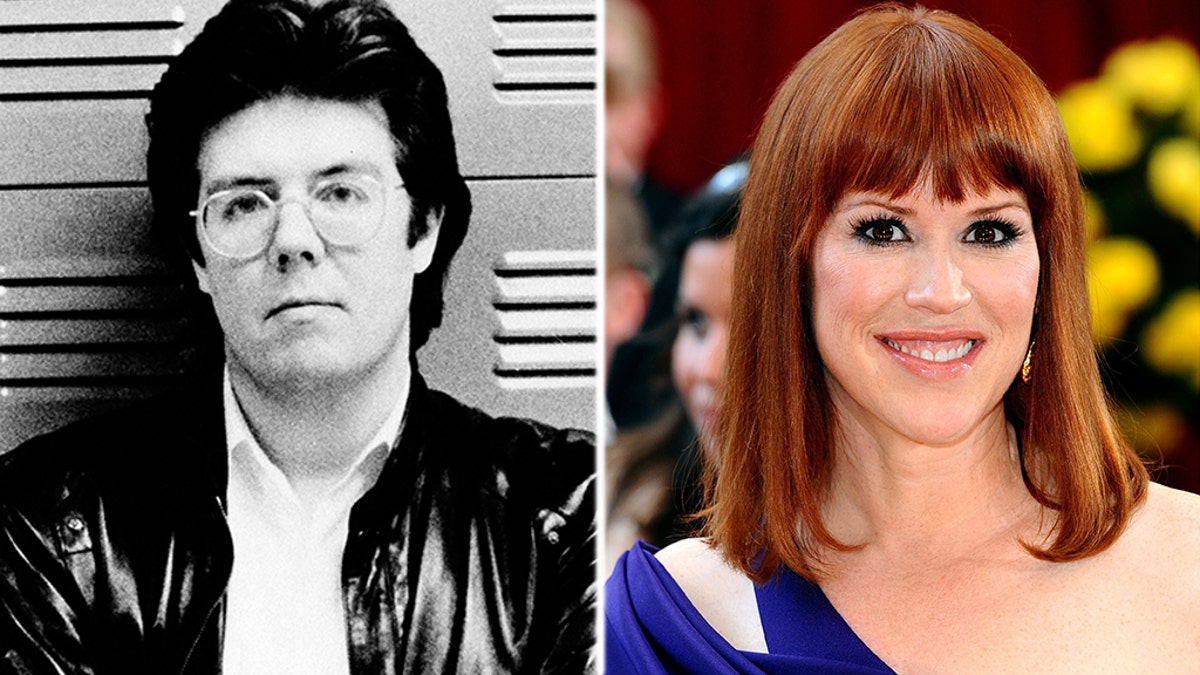
Molly Ringwald penned an essay saying she was “troubled” with some parts of the John Hughes-directed film “The Breakfast Club.” (AP)
Actress Molly Ringwald says she revisited her hit film “The Breakfast Club” after her daughter asked to watch it but the 1980s film icon found parts of it “troubling” in the wake of the #MeToo era.
Ringwald, 50, wrote Friday in the The New Yorker that she watched the hit John Hughes-directed film with her 10-year-old daughter but was “worried she would find aspects of it troubling.”
“But I hadn’t anticipated that it would ultimately be most troubling for me,” Ringwald explained.
The actress said the part of the film that bothered her the most was when her character, Claire Standish, was inappropriately touched by John Bender, played by Judd Nelson.
“At one point in the film, the bad-boy character, John Bender, ducks under the table where my character, Claire, is sitting, to hide from a teacher,” she wrote. “While there, he takes the opportunity to peek under Claire’s skirt and, though the audience doesn’t see, it is implied that he touches her inappropriately.”
Ringwald said she was 16 at the time so somebody else played her during that scene. She said her mother was even more embarrassed and upset by the scene and asked Hughes to cut it out of the film.
OKLAHOMA MOM ‘EMBARASSED’ HER DAUGHTER’S TEXTBOOK WAS USED BY BLAKE SHELTON NEARLY 4 YEARS AGO
“What’s more, as I can see now, Bender sexually harasses Claire throughout the film,” Ringwald wrote. “When he’s not sexualizing her, he takes out his rage on her with vicious contempt, calling her ‘pathetic’, mocking her as ‘Queenie’. It’s rejection that inspires his vitriol.”
Despite Bender’s constant harassment, he ends up with Claire at the end of the film, Ringwald noted.
“I kept thinking about that scene,” Ringwald wrote. “I thought about it again this past fall, after a number of women came forward with sexual-assault accusations against the producer Harvey Weinstein, and the #MeToo movement gathered steam. If attitudes toward female subjugation are systemic, and I believe that they are, it stands to reason that the art we consume and sanction plays some part in reinforcing those same attitudes.”
The actress also starred in two other Hughes films, “Sixteen Candles” and “Pretty in Pink.” She explained she “felt the need” to re-examine how her depiction in the films “played in cultural life.”
“If attitudes toward female subjugation are systemic, and I believe that they are, it stands to reason that the art we consume and sanction plays some part in reinforcing those same attitudes,” Ringwald wrote.
Ringwald praised Hughes for writing about what adolescents go through but said he had a “glaring blind spot” despite writing about sensitive topics.
The actress said she was only “vaguely aware” when she was a teen how “inappropriate” Hughes’ writing was at the time. She recalled the time when she asked him to cut a scene in “The Breakfast Club” where a gym teacher was swimming naked in the school’s pool while being spied on by the school’s villainous vice principal Mr. Vernon.
She also recalled another scene she got cut from “Sixteen Candles” when her character, Samantha, was asked by her father where her underpants were. Ringwald said her mother “objected” to the scene.
“My mom objected. ‘Why would a father know what happened to his daughter’s underwear?’ she asked. John squirmed uncomfortably. He didn’t mean it that way, he said—it was just a joke, a punch line. ‘But it’s not funny,’ my mother said. ‘It’s creepy,’” she wrote. She said Hughes changed the scene.
Ringwald explained the other problems she had with Hughes films were the use of gay slurs and the absence of minority characters.
The actress concluded the essay stating Hughes was able to make movies that helped people “take teens seriously” which she felt was the “greatest value of the films.”
“The conversations about them will change, and they should. It’s up to the following generations to figure out how to continue those conversations and make them their own—to keep talking, in schools, in activism and art—and trust that we care,” she concluded.
Hughes died at the age of 59 in 2009 from a severe heart attack. He is also credited with hit films “Home Alone” and “Ferris Bueller’s Day Off.”






